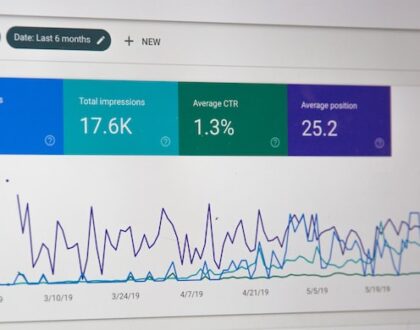The Importance of Marketing Beyond Press Releases for Startups
by editor
You’ve made a good business plan, gotten the money you need, and are excited to tell the media about your brand. People tell you that you need PR, which stands for “press release,” right?
People often think that public relations (PR) only includes news releases when they talk to startups about it. When you add earned media, which is a type of PR, things become even less clear.
Start-ups that think their names don’t need PR because they haven’t had any “bad press” are even worse. For the record, crisis communications is another type of PR that deals with bad news or tries to stop it before it happens.
It’s a real problem that people mix up earned media with crisis communications or writing a press release when they spend more time than ever researching brands by reading reviews, comparing goods, listening to podcasts, and seeing what trusted influencers say.
If you want your company to succeed, you need to understand how earned media fits into the PR world. Your marketing materials will never be as powerful as third-party confirmation.
The PR tent
Public relations is a broad term for any kind of planned contact between a brand and the media. But in everyday speech, the term has come to mean momentary press, which does include press statements. Today, public relations (PR) mostly means working with the media to get the word out about an event, statement, or moment. In other words, it means doing good things for your business.
As with other types of PR, crisis communication is tied to specific events or moments, but this time they are bad ones. Crisis communications is about talking to the media when there is a problem. It doesn’t matter if you need to react to bad press that has already been written about you or if there is an upcoming event that the press might write badly about (like layoffs, a change in leadership, etc.).
People often don’t understand or have trouble with the third group, “earned media.” Earned media doesn’t rely on specific events or moments, but PR that is based on moments can lead to earned media. What is earned media? It’s just media attention that you “earn.” It could be a source that compared your product to another one, a show that asked your CEO to be a guest, or an influencer who talked about your brand in one of their live streams.
Building brand recognition, credibility, and market share through third-party validation is what earned media is all about.
Find out more: How brands can connect with today’s customers and cut through the noise
What kind of PR do new businesses need?
Your company needs a certain kind of PR based on its triggers and goals. Yes, if you want to market your brand, you should send out a news release and then run a PR campaign to make the most of your time.
When there is a “go-to-market” moment, a product launch, an announcement of funds, or something else that is sure to make news, you should ask yourself, “How can I use this moment to get attention?” When you do moment-based PR, you act quickly and seize chances to stand out from the crowd.
time-based PR works, but only when there is a “moment” to highlight. You need news in order to be interesting. A lot of the “news” that companies read is, unfortunately, pretty dull. A free AI tool called Snooze or News was made by my company. It reads and rates press releases. It gives PR pros brutally honest comments and helps them figure out how to best revise and pitch their news to the media.
On the other hand, neither Snooze nor News can make non-news interesting to read—PR pros can’t add sizzle to meat that isn’t there to begin with. If you want to change your PR strategy, earning media is much more useful than building a campaign around something boring or unimpressive.
Getting noticed in the market with earned media
Now that you’ve started your brand and used newsworthy events to your advantage, what do you do next?
To stay in business and start to make progress, you need to increase your market share and make your company the best in its field. Not much is as powerful as having a well-known publication or influencer say nice things about your business or give you a chance to tell your story. You have to earn that support and platform.
When compared to moment-based PR, earned media doesn’t happen at a certain time. Instead, you should keep working on your earned media plan, ideally along with your free and paid social media efforts to make each piece of earned media you get more popular. The goal with earned media is to build a steady flow of earned press, which can include things like podcasts, interviews, awards, relationships with influential people, and more.
The earned media you get is easy to find through search engines, which expands the reach of your business and gives it unmatched credibility. Putting a date on these things helps build a background of your brand and shows that your business is strong, dependable, and successful.
In marketing, repetition is key to making money, and this is especially true for paid media. When third-party approval helps brands get more share of voice, they get more sales and keep more customers.
When do interactions during a crisis come in handy?
Even though no one likes to think about how to handle a crisis, it’s better to have a plan than to try to make one on the spot.
Layoffs, legal issues, security and data breaches, and office closings are all common things that can lead to a crisis communication. In times of trouble, public relations experts can help startups handle things by changing the story in a way that benefits the business. When there is a crisis, people should be able to stop it early on, shorten the news cycle, and move on from the crisis as soon as possible.
Startups should keep in mind that we can only manage what we can manage. Companies can keep their market faith and customer trust by using crisis communications when they need to. These things do, in fact, make a big difference and are essential to how people see the company and its growth as a whole. Being very flexible is the most important thing to do in times of trouble.
Recommended Posts

Can Attentiveness Actually Drive Campaign Success?
November 8, 2024

Marketers Must Create Time for Time Management
October 25, 2024

Maximizing Revenue Growth Through Sales and Marketing Alignment
October 11, 2024
